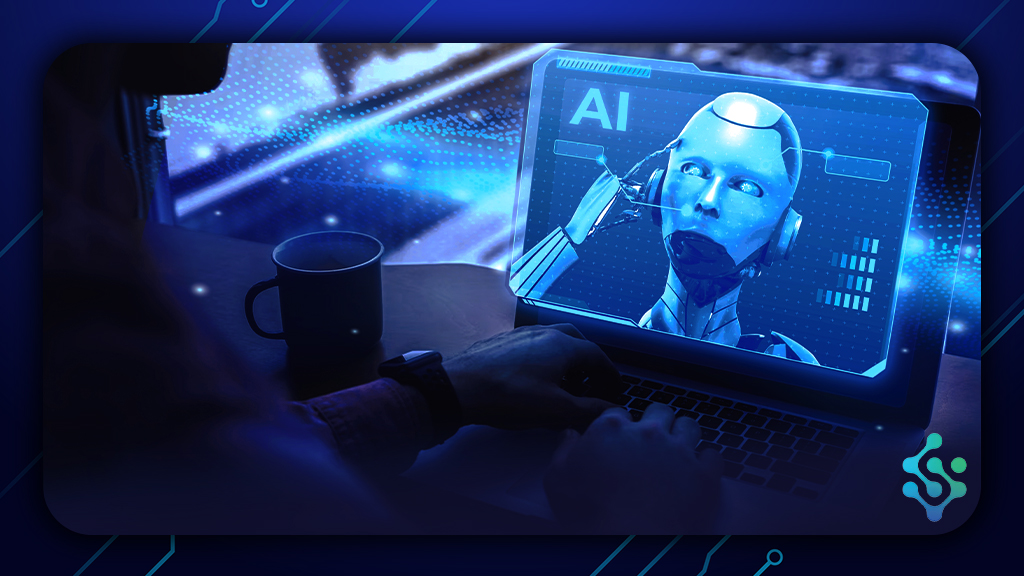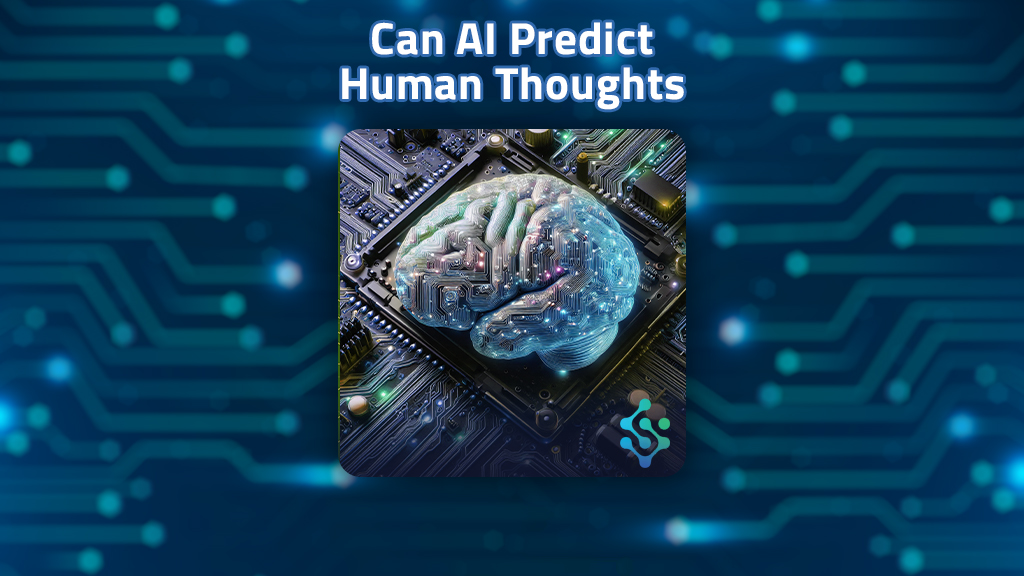Can AI predict human thoughts? In the ever-evolving landscape of Artificial Intelligence, the enticing question of whether AI can predict human thoughts looms on the horizon. As of now, AI demonstrates remarkable prowess in understanding patterns, deciphering data, and even engaging in nuanced conversations. The strides made are overwhelming, yet the true limit lies in unraveling the complexities of the human mind. Can AI truly dive into the realm of predicting our thoughts, unraveling the complexity of consciousness? The present showcases formidable capabilities, but the future promises an even more intriguing dance between technology and the workings of human cognition. Join us on this journey as we explore the present landscape and dare to predict the uncharted territories that lie ahead in the realm of AI and human thoughts.
Can Artificial Intelligence really able to predict human thoughts
As of now, while Artificial Intelligence exhibits remarkable capabilities in analyzing past data to forecast future outcomes, it faces a profound challenge in predicting individual thoughts or actions with absolute certainty. Despite AI’s capacity to untie patterns and glean insights from historical data, the complexities of human cognition and the dynamic nature of consciousness pose a formidable challenge. The current limitations acknowledge that, as an AI, the intricate and nuanced realm of predicting human thoughts remains a complex and difficult limit, where certainty remains in question. So, can AI predict human thoughts? The answer is “No” but “for now” it seems.
This question also presents an interesting paradox. Fundamentally, Artificial Intelligence aims to replicate human cognitive abilities, suggesting that if humans can predict an outcome with a certain degree of certainty, AI could potentially surpass this capability. Machines, devoid of human limitations, excel in processing vast amounts of data and accounting for complex details, which can enhance predictive accuracy. Numerous industries, from finance and urban planning to weather forecasting and marketing, already leverage AI for predictions based on human analysis.
In essence, with sufficient data, AI could conceivably forecast various aspects of an individual’s routine, from daily activities to preferences. However, achieving 100% accuracy in predicting immediate actions remains a challenge. Asking AI itself (AIA, ChatGPT and Claude), we have come to a consensus that “I acknowledge that while machines can rival human predictors, absolute precision in anticipating every move at any given moment is an ongoing frontier.”

Can AI predict and analyze brain activity
Biologically, predicting and analyzing brain activity is a multifaceted endeavor due to the complex nature of the human brain. The brain functions through a complex network of neurons, communicating through electrical and chemical signals. While technologies like functional magnetic resonance imaging (fMRI) and electroencephalography (EEG) allow us to observe brain activity, deciphering the nuanced language of thoughts remains a formidable challenge. Human thoughts are not isolated events; they involve a web of associations, emotions, and subconscious processes that make prediction a multifaceted puzzle.
Technologically, advancements in neuroimaging and artificial intelligence have opened new paths for understanding and predicting brain activity. Machine learning algorithms, when trained on large datasets of brain scans, can identify patterns associated with specific thoughts or actions. Functional MRI, for instance, measures blood flow in the brain, and AI algorithms can analyze these patterns to infer cognitive states. However, it’s essential to note that these technologies are currently more adept at recognizing broad patterns rather than deciphering individual thoughts with granular precision.
The interface between AI and brain activity prediction holds promise, especially in the fields of neurology and cognitive science. Brain-computer interfaces (BCIs) aim to create a direct communication pathway between the brain and external devices, allowing for both observation and potential manipulation of brain activity. While these technologies are advancing, the ethical implications of decoding and predicting thoughts raise concerns related to privacy and consent.
In conclusion, the synergy between AI and brain activity prediction represents a cutting-edge border with immense potential. However, the current state of technology underscores the complexity of unraveling the limitless details of individual thoughts, emphasizing the need for continuous exploration and ethical considerations in this evolving field.
AI reading brain waves
A glimpse into the future unfolds with the convergence of AI and neurotechnology in the realm of AI reading brain waves. This cutting-edge field aims to decode brain activity, offering a profound understanding of neural patterns. Using technologies like EEG and AI algorithms, researchers dive into the process of brain waves. AI reading brain waves holds vast potential, from revolutionizing medical diagnostics to enhancing human-computer interaction. As we navigate this transformative era, ethical considerations guide the exploration of this uncharted territory, ensuring that the fusion of technology and neuroscience opens new frontiers responsibly.
So, in the dynamic landscape of Artificial Intelligence, the question that captivates minds is whether AI can predict human thoughts. Presently, AI showcases remarkable capabilities in deciphering patterns, analyzing data, and engaging in nuanced conversations. However, the true challenge lies in unraveling the complexities of the human mind. While AI can analyze past data to forecast outcomes, predicting individual thoughts with certainty remains a profound challenge. Despite these current limitations, the interplay between technology and human cognition promises an intriguing journey into uncharted territories.
How to block mind-reading technology?
In a world where AI dances with the complexities of the human mind, the notion of blocking mind-reading technology seems like trying to outsmart our own creations. Picture this: a futuristic scenario where you accidentally reveal your lunch plans to your AI assistant, only for it to respond with the perfect sushi recommendation. While the idea of privacy is the most important matter of todays era, there’s a quirky charm in letting technology peek into our thoughts. So, how to block mind-reading technology? Well, here’s a cheeky suggestion: embrace it! There’s no need to hide your love for pineapple on pizza or your secret obsession with cat videos. Let the mind-reading tech add a dash of surprise to your daily interactions. After all, a world where your AI knows you better than yourself might just be a tad more entertaining. So, instead of blocking the mind-reading tech, let’s raise a virtual toast to the quirks and joys it might uncover along the way. Cheers to the playful possibilities of a mind-reading AI future!
Now, can AI predict human thoughts? No. Will AI be able to read brain waves? It is certainly a challenge but it seems possible and also helpful. Should we block it? In order to keep up with the speed of the world, no, embrace it!


No comment